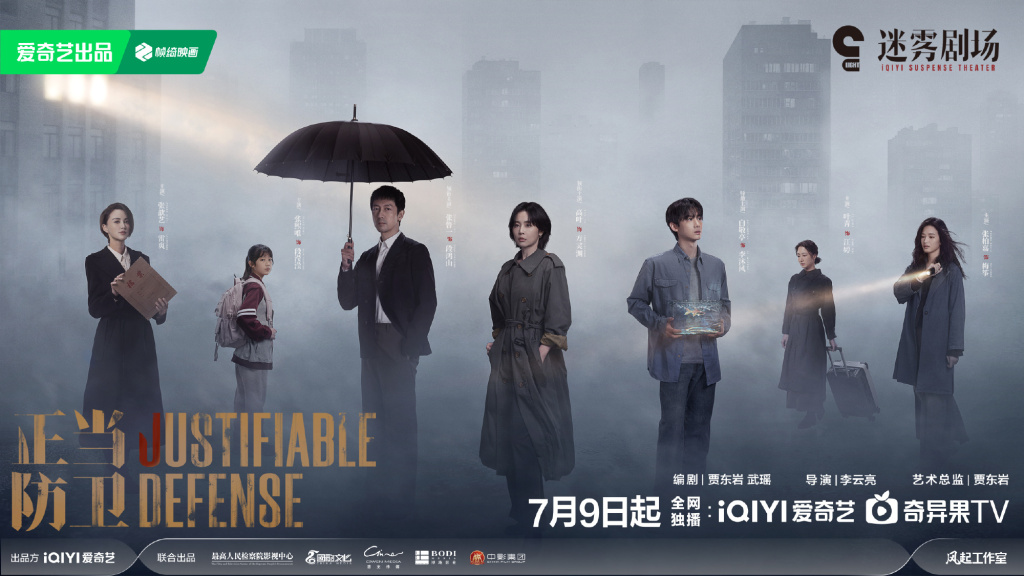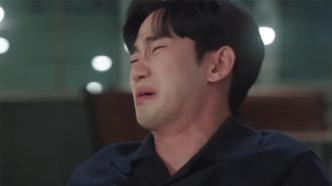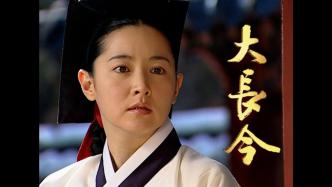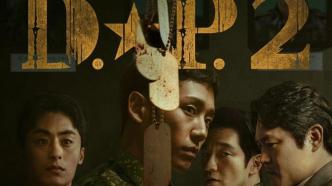
"DP: Deserter 2" (hereinafter referred to as "D.P2"), which was recently broadcast on Netflix, is the sequel to "DP: Deserter" (hereinafter referred to as "DP") broadcast in 2021. 2021 is the year when Korean dramas exploded on Netflix. For example, the global hit "Squid Game" was launched, but "DP" was the one with the best global reputation among the many Netflix Korean dramas that year. It got a high score of 9.1 on Douban. It also defeated many strong players such as "Squid Game", and won awards such as the best work in the TV department of the Baeksang Arts Awards, and the best TV series in the Qinglong TV Drama Awards.
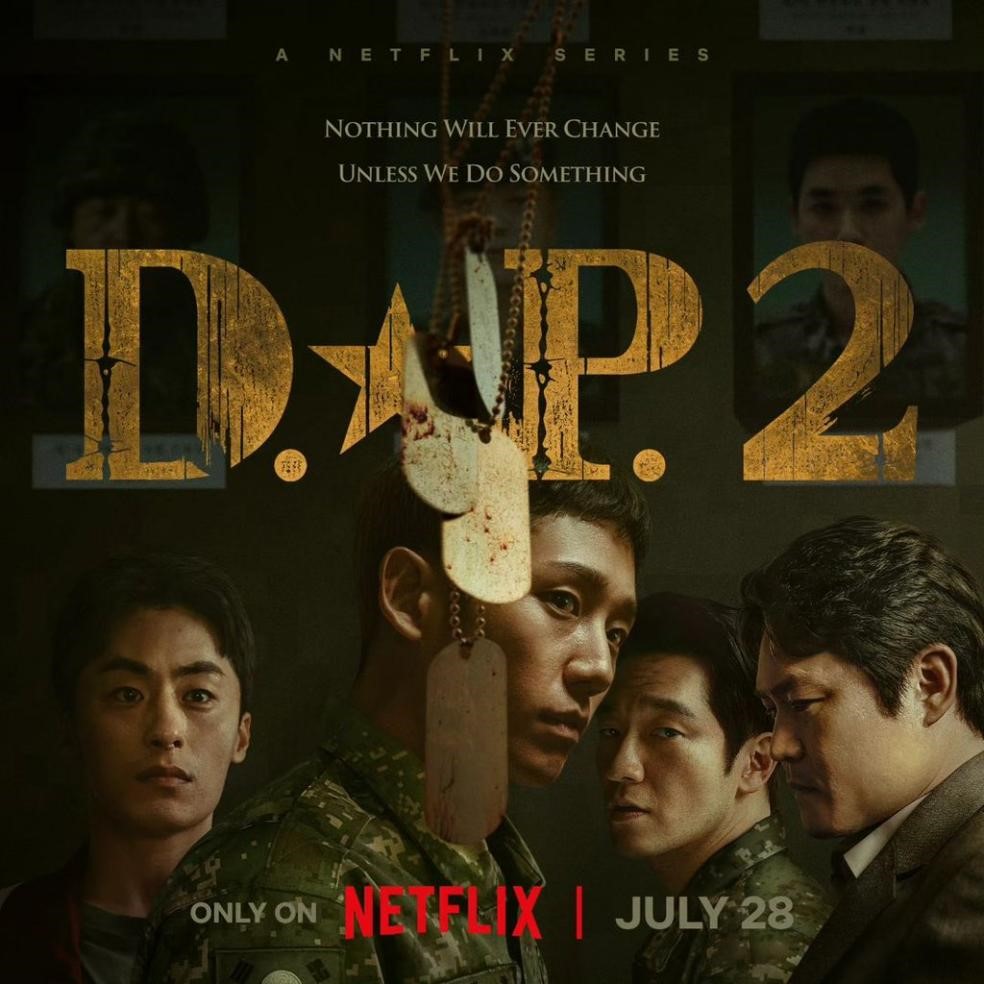
"DP: Deserter 2" poster
After two years, "D.P2" was launched, continuing the lineup and story of the first season. The full name of "DP" is "Deserter Pursuit". Through the perspectives of An Junhao and Han Haoyeol, the series reveals the reason why the deserters "flee", and then reveals the deep-rooted and terminally ill bullying culture of the South Korean army.
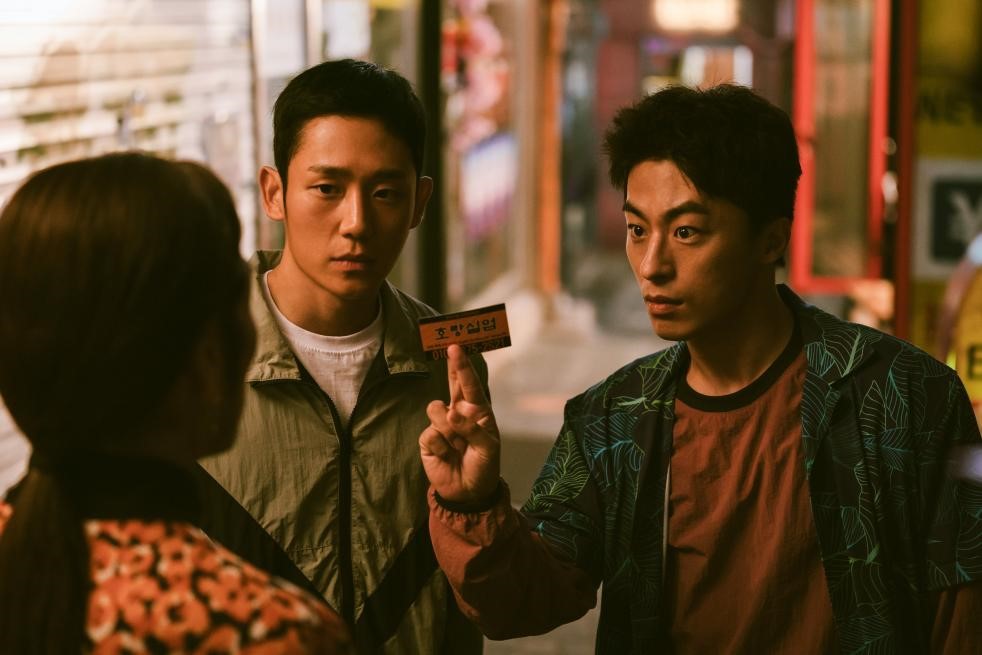
Ahn Joon Ho (Jung Hae In) and Han Ho Yeol (Koo Gyo Hwan)
South Korea implements a conscription system for its males. As long as an adult man who has reached the age of 20 years, no matter what industry he is in, whether he is a singer, an actor or a college student, he must serve in the military. The latest enlistment age can be postponed to 30 years old. , or those who have made great contributions to South Korea (such as winning Olympic gold medals and Asian Games gold medals) can be exempted from military service. South Korea recruits about 250,000 recruits each year, and only about 45 are exempt from military service.
Desertion is a global phenomenon. Even the best army will have individual deserters. However, South Korea’s desertion problem is world-renowned. The number of soldiers in service is not the largest, but there are not many deserters every year. Only the Army has an average of more than 100 people every year. Choose to be a deserter. It is a problem of individual people to be deserters. The desertion has become a common phenomenon, which points to the cultural problems of the Korean army, especially the notorious bullying culture in the Korean army.
"DP" and "D.P2" focus on all kinds of deserters, but what all deserters have in common is that they have encountered cruel bullying in the army. The bullying methods are varied, such as verbal humiliation, corporal punishment, physical violence, and sexual harassment. Some are comparable to torture, and the bullied suffer both physical and psychological pain. Some people would rather die than die, and some people choose to escape when they can't bear it.
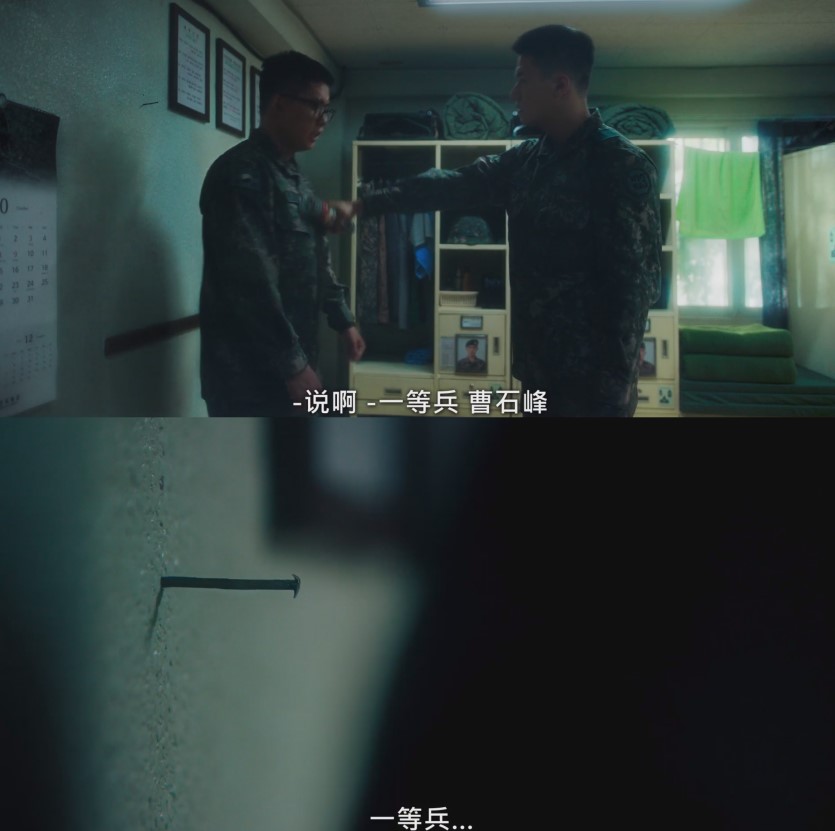
There are nails in the wall, the veteran pushes the recruit against the nails, hitting the back of his head directly on the nails
Both "DP" and "D.P2" have the courage to face the reality and criticize the reality. The overall tone is dark and heavy. The movement and stillness of the characters also form an interesting tension...
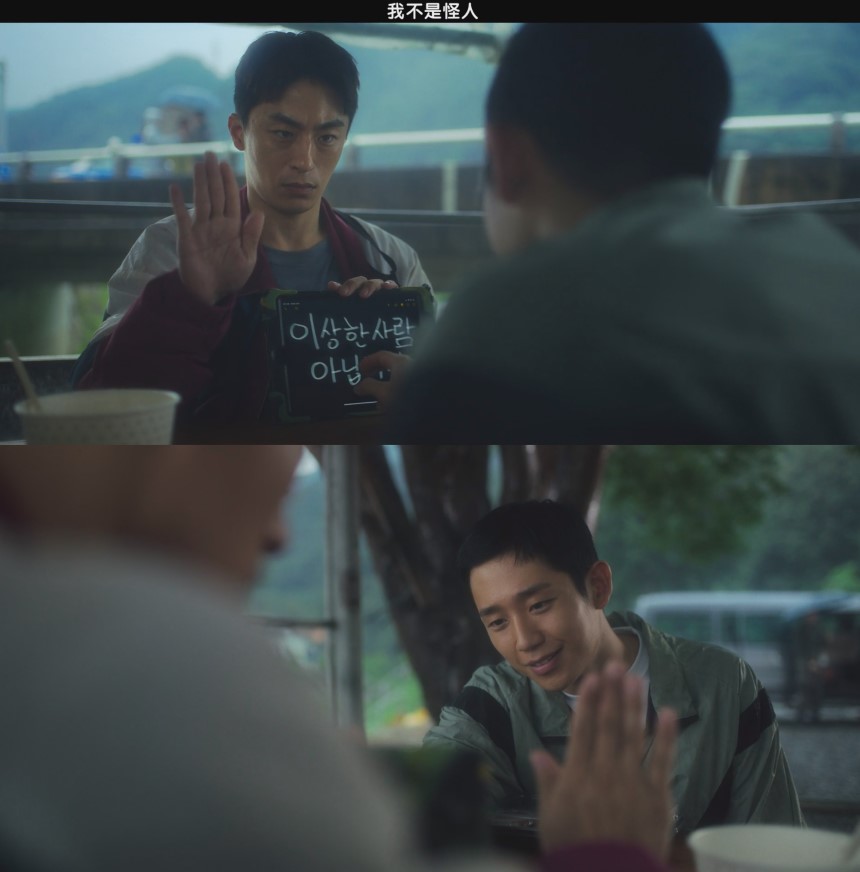
The personalities of the two in the pursuit team form a contrast
In comparison, "DP" will be more holistic. The episodes are all shrouded in a kind of despair that overwhelms the city, and the questioning hits people's hearts; "D.P2" certainly continues the "DP" style, but it tries to find a way to break the army’s bullying culture, so that individuals can bravely confront the system, but it can’t help but fall into the trap of "childish disease" in the cool drama-the protagonist happens to find out that the military has a dirty secret in the USB, The court staged a "last-minute rescue"...
But what if the USB is not found? South Korea's bullying culture is so ingrained that it's hard to win by such chance. Precisely because the series has always had a serious and realistic tone, such a victory seems trivial.
In addition to bullying in the military, many domestic audiences have seen Korean bullying on campus and in the workplace through various Korean dramas. The proliferation of bullying in South Korea is, in the final analysis, the distorted and mutated order of superiority and inferiority in South Korea.
This hierarchical order of superiority and inferiority is not only influenced by Confucian culture. Ancient Korea was a feudal society with strict hierarchy. Colonized by Japan for a long time, there is a clear division of race in the colonial culture. For example, the colonists are the highest, the local agents supported by the colonists are the next level, and the local civilians are the lowest; after that, South Korea became independent and achieved economic prosperity. However, the economic system of plutocratic capitalism allows the powerful class to monopolize the advantageous resources in society and place them in the position of "the upper class". The concept of hierarchy is revived and intensified...
Although in many countries and regions, there is more or less such a hierarchical order-many powerful classes use their resources and influence to enjoy privileges that ordinary people cannot enjoy, and they are arrogant and superior; but in South Korea, This kind of hierarchical order is more extreme, because it is not only based on power, but also on the basis of seniority, age, seniority, status, and rank.
That is to say, the order of respect and inferiority in South Korea is "generalized". On campus, seniors and older sisters can call on juniors and younger sisters; in the workplace, there is not only a superior-subordinate relationship, but age, rank, working years, and work performance can all form a hierarchy among migrant workers; South Korea also has a unique "mafia Culture", the youngest is not necessarily the one who gets the most care, but the one who is the most diligent and discerning, such as being the first to come and the last to leave, helping other colleagues to buy coffee and receive express delivery, etc.
This hierarchical order in all aspects is clearly reflected in the Korean language system. Korean is not difficult to write or recognize, but the reason why it is one of the most complicated languages in the world is that Korean has established a very complicated system of honorifics according to the order of respect between people. . People are particular about the use of honorific language (for elders, workplace communication, and strangers), common language (used between peers or friends), and semi-language (speaking to juniors). A simple "thank you" in Chinese should have different usage and intonation for different people in Korean, otherwise even if you want to express "thank you", Koreans may understand that you are humiliating with language He said that there are too many conflicts caused by language use in Korean society every year.
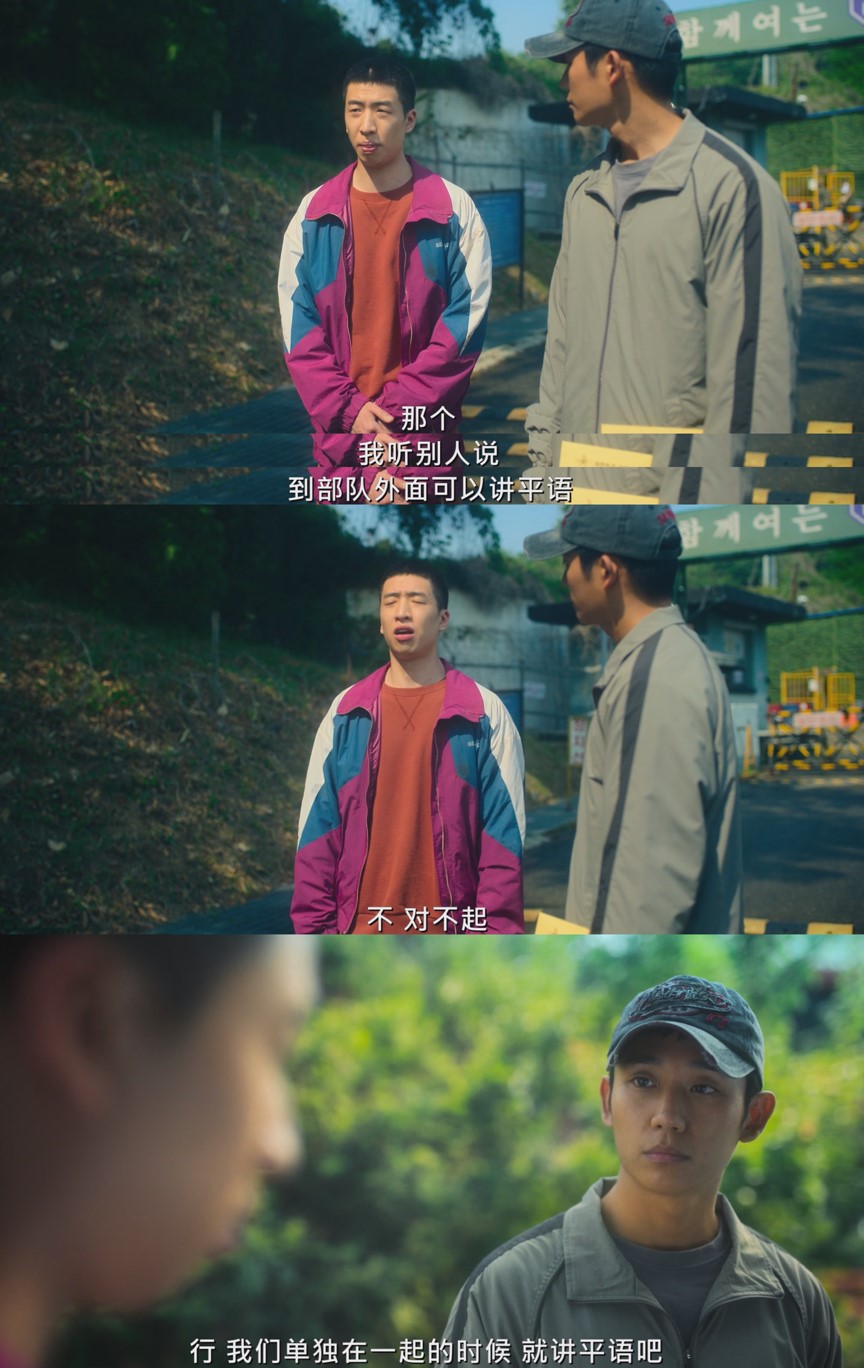
If you speak "Pingyu" without asking the other party's consent, you may be beaten
Language is the most basic and most important logic training. The concept of superiority and inferiority has been implanted in the minds of every Korean since childhood, so that every Korean can fit himself into a certain "position" in society - in some people In front of others, one should be "humble", and in front of some people, one should be "respected".
Language is associated with etiquette. Various social etiquettes in South Korea, from wine table culture to sacrificial ritual culture, are also the most complicated in East Asian society. One thing that impressed me deeply is that there was a Korean student among her classmates when she was a student. She said that she likes China very much. Nine times there will be "renewal stalls", for example, everyone will continue to go to the bar or KTV after eating and drinking. The younger generation dare not not go, otherwise they will be regarded as "out of the group".
After understanding the general background of the hierarchical order in Korea, it is easy for us to enter the situation of "DP" and "D.P2".
In an army that emphasizes "absolute obedience", this level of respect is even more "extremely": the chief is "respected", the subordinate is "inferior", the veteran is "respected", and the recruit is "inferior". "Respect", powerless recruits "humble"... "Honorable" people have the power to demand, order, and command "humble" people, and the "humble" side can only accept, obey, and obey, so the power can be used at any time There is a danger of being abused, and bullying arises from it.
In "DP" and "D.P2", the veterans bully the recruits, and the recruits can only "survive" when they become veterans, because there are new recruits enlisting, and they can also bully the recruits...
At this time, many people will ask, why not resist? Because if you resist, unless it is a tragic and extreme death, if you dare to resist, you will only be beaten more fiercely next time.
Why should bystanders remain silent? Because if you dare to stand up, you will also be beaten, and the bullied will be beaten even harder because you stand up. Therefore, when An Junhao stepped forward to help the bullied person, the bullied person instead told An Junhao privately not to do so, "Yesterday you covered me, but I don't thank you at all, it is impossible for everyone to be like you ".
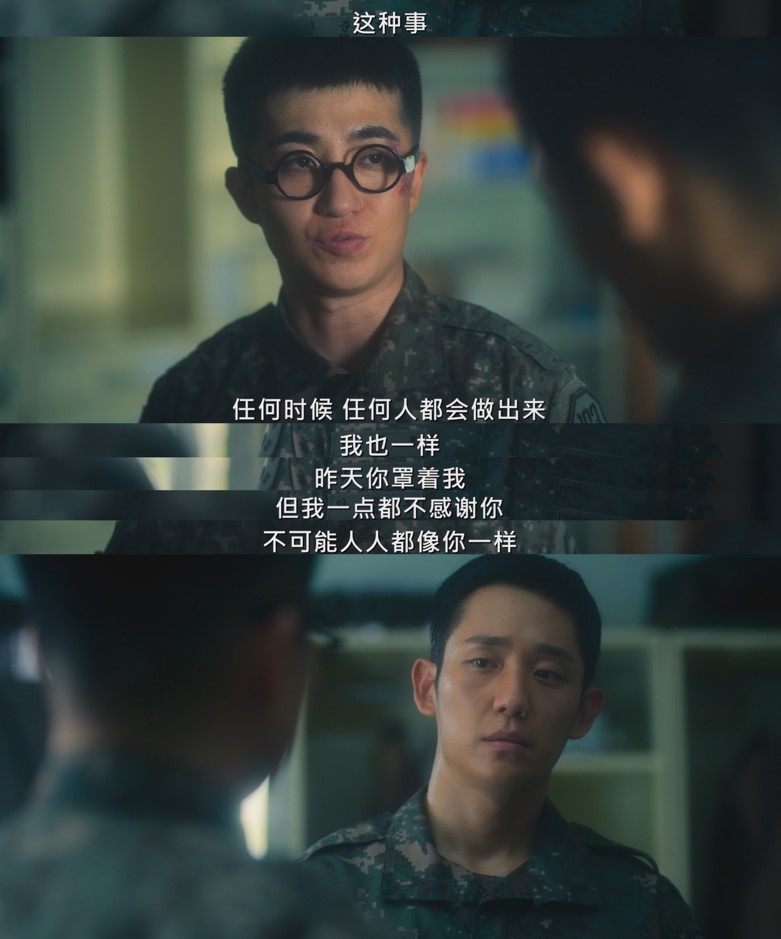
"This kind of thing" refers to bullying others, and the bullied person may also bully others
Why not report the existence of bullying to superiors? Because the chief himself grew up from this kind of bullying culture. They used to be the bullied, and now they are also the bullied. In front of their chief, they returned to the situation of the bullied; The exposure of the police will only increase the scandal in the army. One more thing is worse than one less thing, so the bully is safe and sound, but the whistleblower will be imprisoned instead...
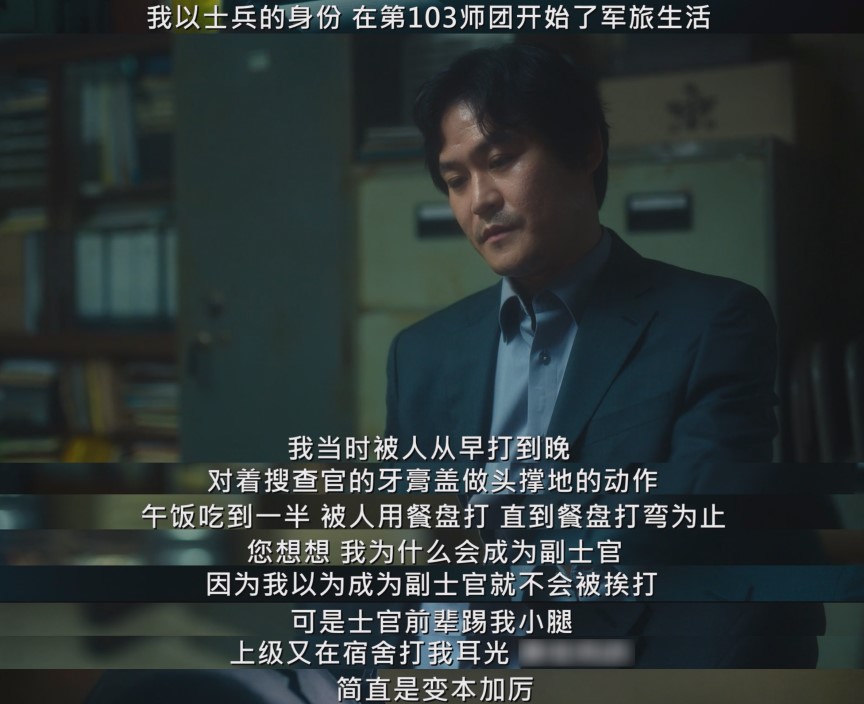
There's no end to bullying because the boss has his boss
Over time, the bullying culture has become like an epidemic virus in the Korean army. Everyone who enters this system is easily infected by this virus and assimilated. Either the position of "respect" or the position of "humble", "respect" people become Bullies, "humble" people are unfortunately bullied... There is no vaccine, no immunity.
After "DP" was aired and became popular, the Ministry of National Defense of South Korea replied through a spokesperson: "Except that the environment in the play is far from the present, after the use of mobile phones in the military camps, when encountering harsh behaviors, soldiers can complain in time. Channels have also become more and more diverse.” In fact, regardless of school bullying, workplace bullying or military bullying, there have been many voices of opposition and criticism in South Korea, and the situation has been improving, but it is hard to say that the bullying culture has disappeared. It just exists in a more hidden form - because the generalized hierarchical order in Korea remains intact.
Therefore, in "DP", a deserter said before committing suicide, "You know the kettle used by our army? Do you know what is written on it? 1953. Even the kettle hasn't been changed, how can you expect it to get better?" In "D.P2", the old man asked in shock, "Although 50 years have passed...has nothing changed?"
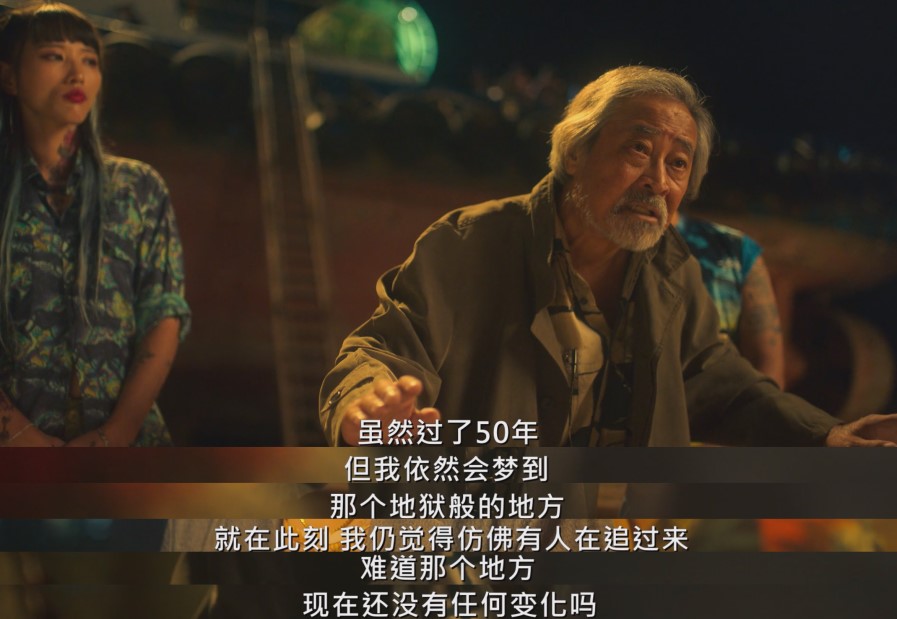
The old man is a veteran and a deserter
In "DP", the "Monty Hall" economic principle was cited to call for the importance of change, and "D.P2" also gave the audience a relatively bright ending, calling for the importance of individual resistance, "Doing this now is like an egg Hitting a rock" "Why can't you hit a rock with an egg?" "The egg will be broken." "Even if it is smashed, it will leave marks. The egg will be stained with rocks."
If "D.P2" is a revenge drama in the style of "Dark Glory", this ending is fine, but as a deeper, more direct, and more realistic realistic masterpiece, there is no respect for the hierarchical order behind the bullying culture Doing a deep review will inevitably make people feel a little regretful.
At the end of the episode, Han Haolie asked Ahn Junho, "Is this the end for us?" Ahn Junho: "What are you talking about? I don't think it has started yet." If there is a third part, we expect it to be truly Breaking.
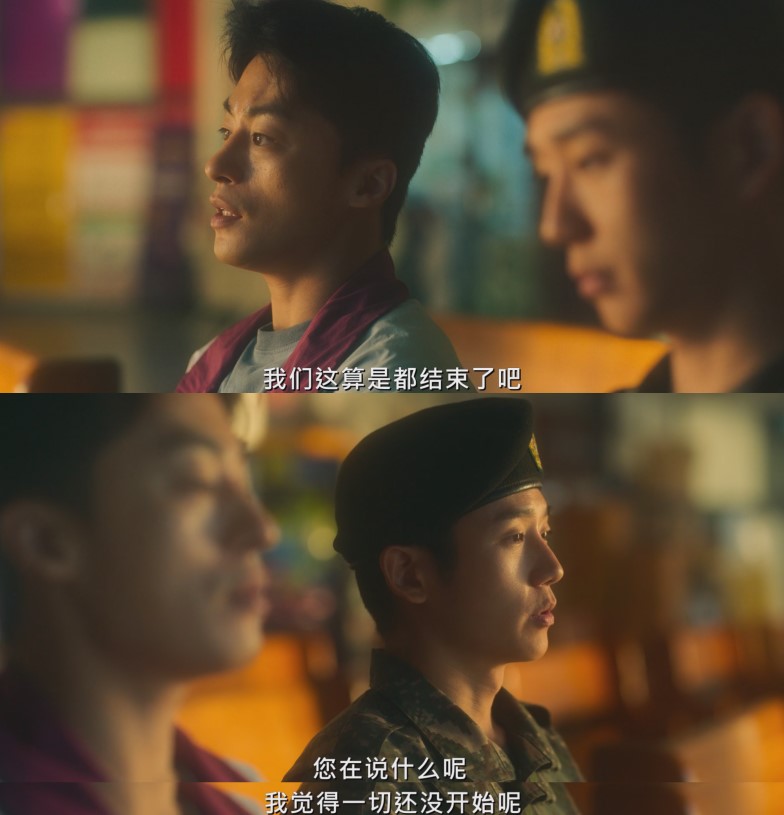
maybe a third season
